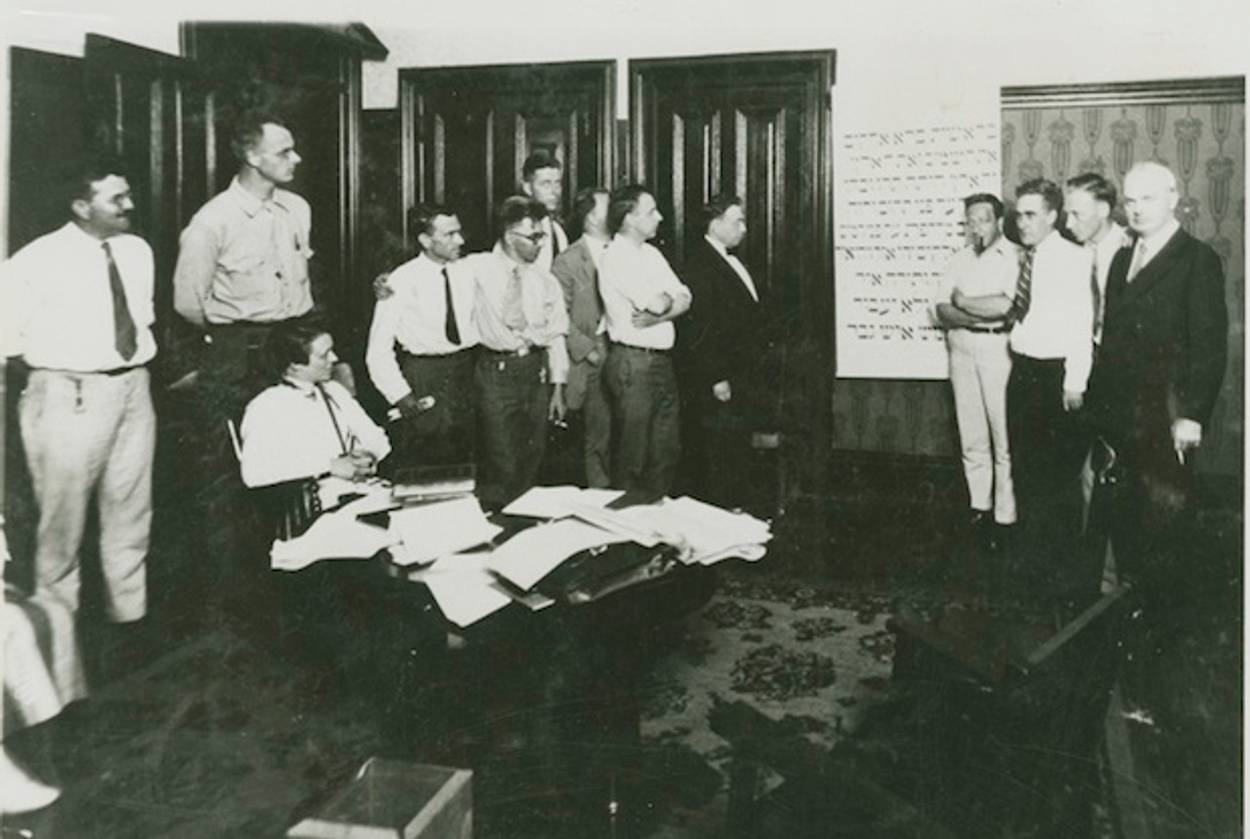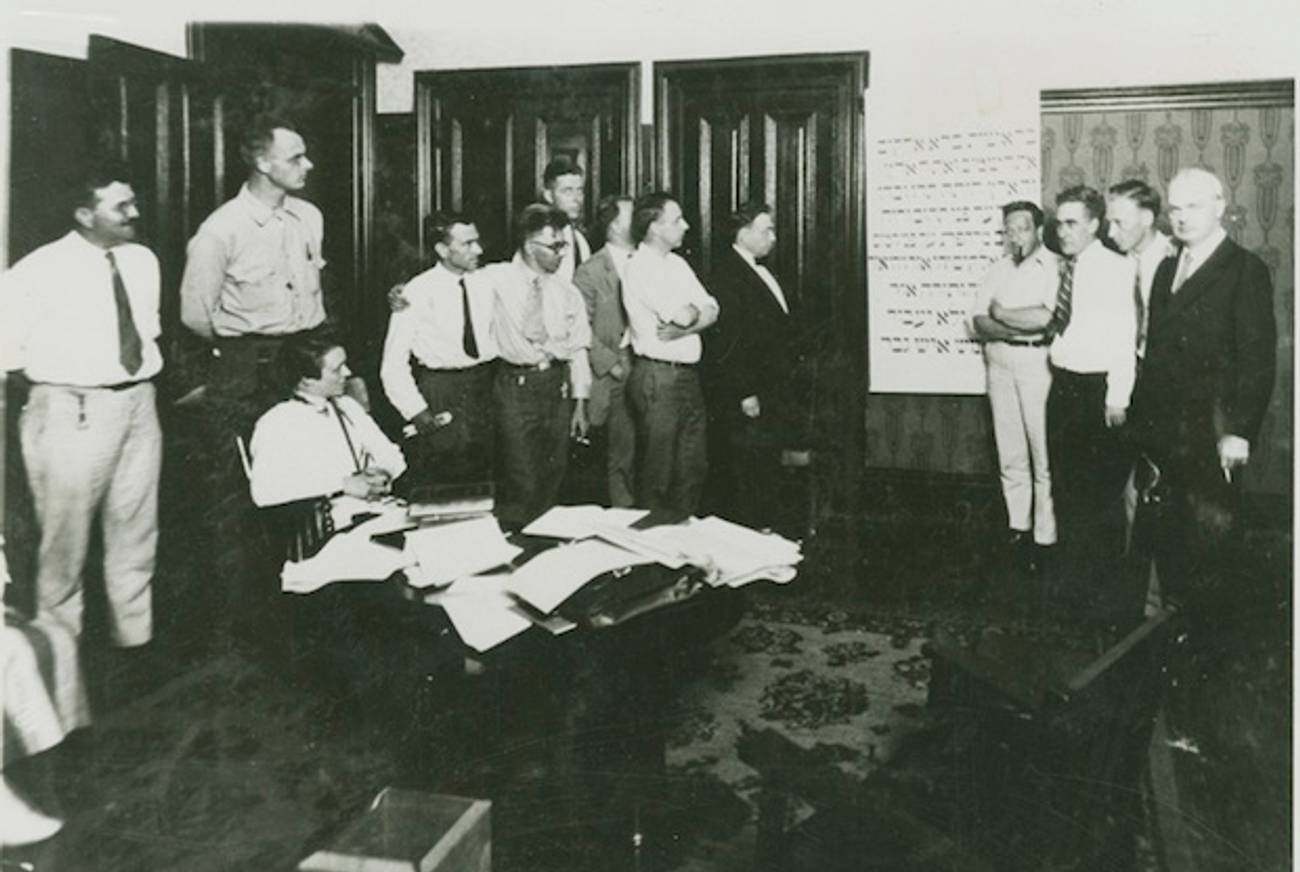When Clarence Darrow Phoned a Talmudist
To defend John Scopes for teaching evolution, he called JTS’s Louis Ginzberg




This week marks the anniversary of the verdict of one of the most famous trials in American history. On July 21, 1925, a jury in Dayton, Tenn., convicted high school teacher John Scopes of violating the state’s law against teaching human evolution. The trial, which pitted celebrated attorney Clarence Darrow against three-time Democratic presidential nominee William Jennings Bryan, lives on today thanks to popular reenactments on stage and screen. But here’s something you never saw in “Inherit the Wind.”
In the middle of the trial, Scopes’ defender, Clarence Darrow, phoned the top Talmudist at the Jewish Theological Seminary, Louis Ginzberg. Darrow was planning to call his opposing counsel, Bryan, to the stand, and interrogate him about the Bible. His aim: to elicit a concession from Bryan, a devout Christian, that the text could be read non-literally. If, for instance, Bryan was willing to say that the six days of creation need not have been 24-hour days, but instead lasted millions of years–which he was–why couldn’t he similarly reconcile evolution with biblical teaching? But before Darrow put this plan in motion, the noted agnostic needed to brush up on his Bible. And so he phoned New York–on Shabbat.
Louis Ginzberg–a polymath who mentored JTS rabbinical students for over 50 years–was just the expert Darrow needed. Among other works, Ginzberg had authored the magisterial Legends of the Jews, a retelling of the biblical story interwoven with thousands of anecdotes drawn from midrashim, Josephus, Philo, the Apocrypha, and Church Fathers. (He reputedly kept all of its 36,000 references in his head.) Ginzberg’s son, Eli, recounts Darrow’s inquiry in his biography of his father:
In the middle of the famous Scopes trial, being conducted in the summer of 1925, the telephone rang one Saturday afternoon. My mother answered, as was her wont, and informed my father that Mr. Darrow wanted to speak with him. There was a brief delay, occasioned by the fact that my father hated to use the phone and did so only under compulsion. Since he customarily did not talk on the phone on weekdays, he decided that he would not use it on the Sabbath—although his objections were not doctrinal. It was decided that my mother would relay the questions and the answers.
Darrow wanted to know whom Cain had married: Was it not his sister? Apparently he was attempting to make the story of evolution more palatable than the scriptural account of the beginnings of man. My father was quick with his reply. He told my mother to inform Mr. Darrow that he didn’t like to discuss scandal, surely not by phone, and still less on the Sabbath. But, he said, he would drop Darrow a line with some leads to the Legends of the Jews which he might find useful!
Why did Darrow ask this particular question? He hoped to compel Bryan to admit that the biblical account of man’s origins was incomplete by noting that nowhere did it explain where Cain found a spouse. (His parents Adam and Eve, the first humans, are recorded as having only three sons.) Lest there be something he’d overlooked on that score, Darrow checked with Ginzberg. Whether he ever got the scholar’s promised memo, it seems Darrow was satisfied with what he learned, because he put this very question to Bryan on the witness stand. Here’s how it went down:
Darrow: Did you ever discover where Cain got his wife?
Bryan: No, sir; I leave the agnostics to hunt for her.
Darrow: You have never found out?
Bryan: I have never tried to find.
Darrow: You have never tried to find?
Bryan: No.
Darrow: The Bible says he got one doesn’t it? Were there other people on the earth at that time?
Bryan: I cannot say.
Darrow: You cannot say. Did that ever enter your consideration?
Bryan: Never bothered me.
In fact, the midrash maintains that Adam and Eve had many more unmentioned offspring, solving this particular problem. But apparently Bryan was unaware of such sources, or unwilling to cite them and concede the need for extra-biblical interpretation.
Ginzberg was not the only rabbi to make his mark at the Scopes trial. Herman Rosenwasser, a Hungarian-born Reform rabbi, actually traveled to Dayton for the proceedings. Though uninvited, he so impressed the defense team that the ACLU’s lawyer Arthur Hays delivered the rabbi’s argument–that the Hebrew text of Genesis, properly translated, in fact supported the evolutionary narrative–in court. (You can see Rosenwasser giving Hebrew instruction to the defense attorneys in this photo.)
In fact, Ginzberg and Rosenwasser were only a subset of the religious figures who supported the pro-evolution side of the Scopes case–a group which included liberal theologian Charles Francis Potter, and many of the scientists who submitted written testimony on Scopes’s behalf, like Harvard’s Kirtley Mather. These individuals were largely scrubbed from depictions like “Inherit the Wind,” giving the impression that the trial was a simple showdown between science and faith. But as Louis Ginzberg and his comrades remind us, many religious people have never perceived the two realms to be in conflict.
Yair Rosenberg is a senior writer at Tablet. Subscribe to his newsletter, listen to his music, and follow him on Twitter and Facebook.